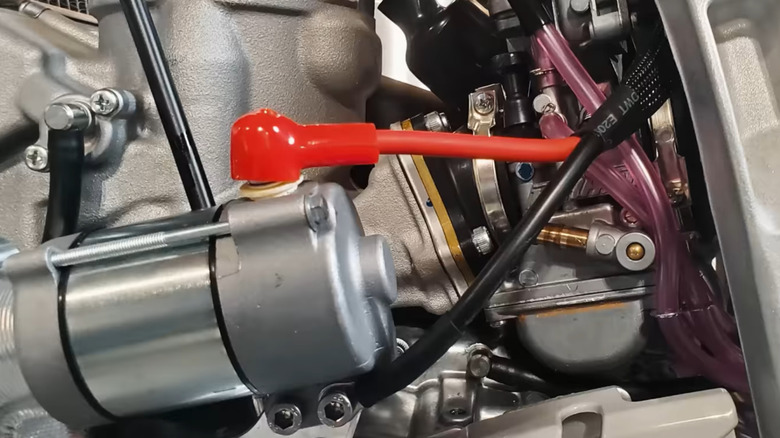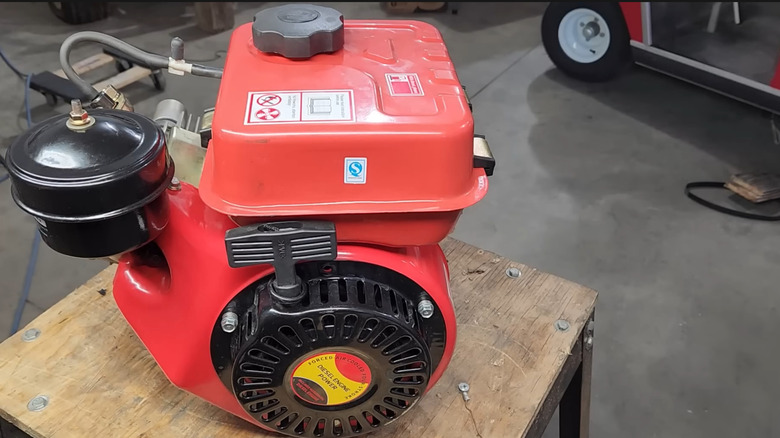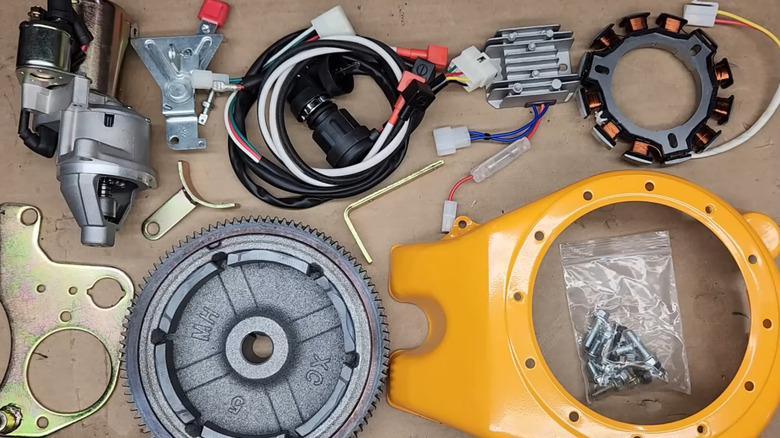Can You Add An Electric Start To Your Diesel Engine?
Most modern diesel engines already feature an electric start system. However, older engines often required manual starting methods such as hand cranks, kick-starts, or pull-starts, which could be frustrating for beginners, especially if the choke was not set correctly.
There are many reasons why you'd want an electric start for your diesel engine. It could be a diesel-powered go-kart, a lawnmower, or even a dirt bike project that you're working on, but want to have a quick start-and-go operation without any heavy pulling, tagging, or kick-starting to get it running. Also, if you've used a bike for enduro racing, you understand how much of a difference an e-start makes, especially if you're caught up on a hill but can use a button to get going.
The good news is that retrofitting your diesel engine with an electric starter is possible, but there's a catch. You need to have the right parts, and it also requires some professional installation. Fortunately, there are tons of electric starter kits on the market that have been designed for these kinds of projects. If you're the type of person who enjoys getting their hands dirty, there's DIY tutorials on YouTube or diesel engine forums for just about any small diesel engine project you might be looking to undertake.
Understanding how diesel engines start
Diesel engines are quite different. Unlike gas-powered engines that ignite from a spark, diesel engines ignite fuel through compression. If you lived on a farm or owned an old diesel truck, you understand how frustrating it can be to start a diesel engine, especially during cold weather. That's because, for a diesel engine to start, it must first reach sufficient RPMs to compress the air-fuel mixture and initiate combustion. This process normally requires significant torque.
Most diesel engines start using one of several methods: air starters, hydraulic starters, manual cranks, or in modern models, an electric starter. Air starters rely on compressed air to spin a turbine, which engages the engine's flywheel, initiating combustion. Hydraulic starters utilize pressurized fluid to operate a hydraulic start motor, which converts hydraulic energy into mechanical energy, turning over the engine. Manual cranks, more common in smaller, older engines such as go-karts, dirt bikes, or lawnmowers, require physical effort (tagging, pulling, or kick-starting) to generate enough force to initiate combustion and start the engine.
Retrofitting a diesel engine with a starter is quite beneficial as it gives your bike, lawnmower, or go-kart an easy start-and-go operation. It also allows for easy integration with remote or automated systems, and perhaps most importantly, eliminates the need for outdated starting systems.
Adding an electrical start to a diesel engine
There are several starter kits for diesel engines on the market. However, before ordering one, check and verify its compatibility with your engine, which also means checking the voltage and starter motor torque rating. Depending on your diesel engine, it might have an optional starter mount. Also, engine size matters; larger diesel engines might require high-torque starters. If you can get the engine model diagram, check to see if the flywheel ring gear is compatible with electric starter pinions.
To retrofit an electric starter on your diesel engine, you'll need brackets (to hold new accessories), heavy-duty battery cables, ring gear, a voltage regulator, a starter solenoid or relay, an ignition switch, and safety interlocks. If you are purchasing an electric starter kit, it'll come with everything you need to get the setup running. Just make sure the starter kit is designed for your specific model of diesel engine.
The electric starter is usually attached to the engine housing, aligning with the flywheel. The starter will require wire gauge to the battery, the solenoid, and the switches. Additionally, all connections must be fitted correctly, ensuring that all moving parts are unobstructed before starting the engine. Due to their design, small diesel engines often experience common issues that can make this project particularly challenging if you lack professional experience. If you are not confident with mechanical or electrical installations, it is advisable to consult a qualified diesel mechanic or technician for this task.


